
Starting June 1st, 2023 Our warehouse fee will be $0.65/cubic foot per month
In effort to lower the warehouse storage fee during inflation, we have went narrow aisle racking.This construction took us four months but the project is finally completed. With narrow aisle racking, we are able to drop storage by 24%.We as partners will go through this inflation together.
10/31/2023
Ex Works (EXW) and Free on Board (FOB) are both international trade terms, known as Incoterms, which define the responsibilities of the buyer and the seller, including who is responsible for covering all costs and agreements related to the transportation of goods. In this article, Worldcraft Logistics will clarify the definitions, differentiate the differences, and discuss the advantages and disadvantages of these two terms. Please read on for more information.
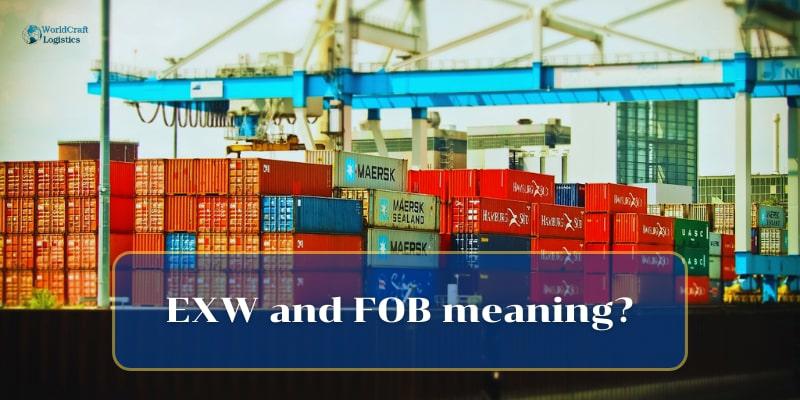
Whether you're an exporter or importer seeking a deeper understanding of Incoterms, join us as we dissect and delve into the essential aspects of each term, highlighting their key features, key distinctions, and guidance on when to opt for FOB versus EXW.
Using the Ex Works (EXW) shipping term signifies that the seller's responsibility is to ensure that the buyer can access and retrieve the goods at the seller's place of business. With EXW, transportation costs and associated risks shift away from the seller, making it advantageous for the shipper.
For instance, let's consider a scenario where a seller of electronic products is based in San Francisco, CA, and the buyer is located in New York, NY. They agree on a price for the products and enter into an Ex Works trade agreement. The buyer intends to collect the products in two weeks, and it is the seller's obligation to have the products ready for pickup. However, all subsequent costs related to transporting the goods to New York City fall on the buyer. The buyer is responsible for covering all transportation expenses, and in the event of any loss during transit, the seller bears no liability.
Unlike EXW, in a Free on Board (FOB) trade agreement, the seller is tasked with delivering the goods to a specified destination for handover to a carrier chosen by the buyer. This designated location in the FOB agreement is the pivotal point where ownership transitions from the seller to the buyer. Responsibilities often shift at this juncture. Up to this point, it's the seller's responsibility to transport the goods. However, what happens beyond this location can vary based on the terms of the agreement.
For instance, let's consider a scenario where a buyer in Los Angeles, CA, wishes to purchase computers from a seller in Chicago, IL, with a FOB trade agreement in place. The buyer specifies air transport for the computers, and the seller bears the expenses for transporting the computers to the Los Angeles airport. At this juncture, the responsibilities shift, and the buyer assumes all subsequent costs associated with transporting the computers to their final destination. The buyer is also liable for any damages that may occur during this leg of the shipping process.
Other "terminology" articles for you:
- What is FIFO in SCM? Definition and EFFECTIVE USE for businesses
- What Are Third-Party Logistics (3PLs) and How Do They Work?
- Deciphering FCL and LCL: Choosing the Right Shipping Method
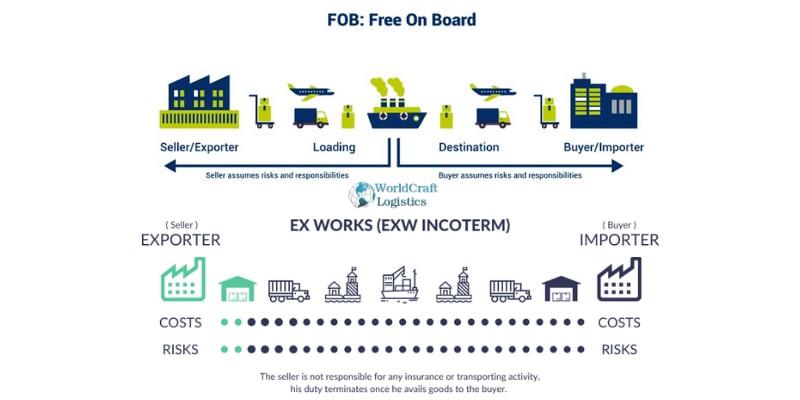
The key distinction between Ex Works (EXW) and Free on Board (FOB) lies in the transfer of responsibility from the seller to the buyer. In FOB terms, the seller is responsible for loading the goods onto the chosen vessel, at which point the buyer assumes responsibility. In contrast, under Ex Works, the seller is only required to make the goods available at a specified location, with no obligation to load them onto any transport.
Another significant divergence between EXW and FOB is in the payment of transportation costs. With FOB, it's the seller who covers the cost of transporting the goods to the vessel before loading them. However, in an EXW arrangement, once the seller has made the goods available at the designated location, any further transportation expenses become the responsibility of the buyer.
FOB's shipping terms are closely associated with maritime and waterway transport, making it primarily applicable to these modes of shipping. On the other hand, EXW can be used for all forms of transportation.
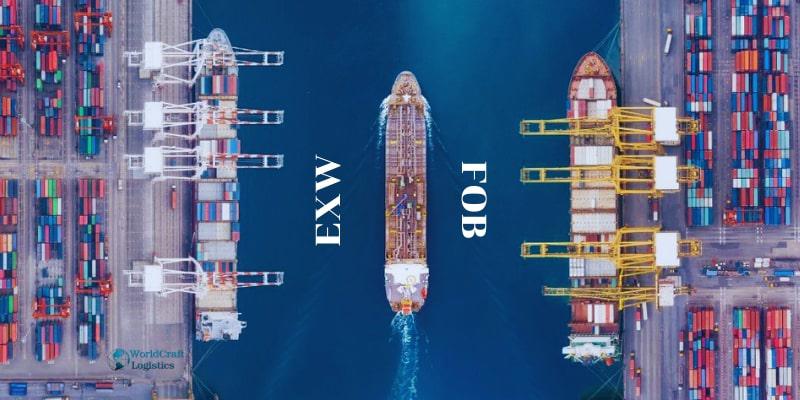
International transportation contracts frequently incorporate abbreviated trade terms to delineate vital conditions such as delivery time and location, payment arrangements, and the pivotal moment when the risk of loss transitions from the seller to the buyer. These terms also encompass details regarding who assumes responsibility for air, sea freight forwarder costs and insurance matters. Among these widely adopted terms are the Incoterms, a set of standardized trade rules published by the International Chamber of Commerce (ICC).
Nevertheless, companies engaged in shipping goods within the United States are additionally governed by the Uniform Commercial Code (UCC). As multiple sets of rules coexist, contracting parties must explicitly specify which governing laws apply to their particular shipment.
There is no one-size-fits-all answer to this question. The choice between FOB and EXW incoterms depends on the specific details of your shipment. Below, we've outlined the key advantages and disadvantages of both shipping terms:
| Advantages | Disadvantages | |
| EXW |
|
|
| FOB |
|
|
Please note that the choice between FOB and EXW must be made based on the specifics of your shipment and your specific requirements. If you are in need of international freight transport and need advice on relevant legal documents => Please CONTACT WORLDCRAFT LOGISTICS IMMEDIATELY
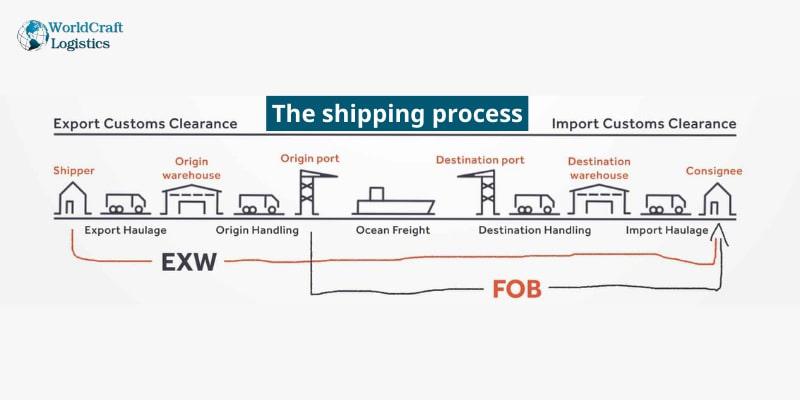
FOB empowers the buyer with greater control and responsibility over the goods once they are loaded onto the vessel, while EXW places the entire burden of transportation and logistics on the buyer's shoulders.
In most cases, products shipped under EXW terms tend to be more cost-effective compared to FOB, as Free on Board obliges the supplier to cover transportation, handling, and customs clearance expenses. However, it's worth noting that EXW arrangements often come with higher risk, as the supplier remains responsible for the goods until they reach their final destination.
Whether you opt for FOB to exercise greater control over logistics or choose EXW for enhanced flexibility in managing transportation, these terms can be strategically leveraged in the global marketplace. A clear understanding of the distinctions between FOB and EXW allows traders to make well-informed decisions, optimize expenses, and ensure the smooth and successful execution of international trade operations.
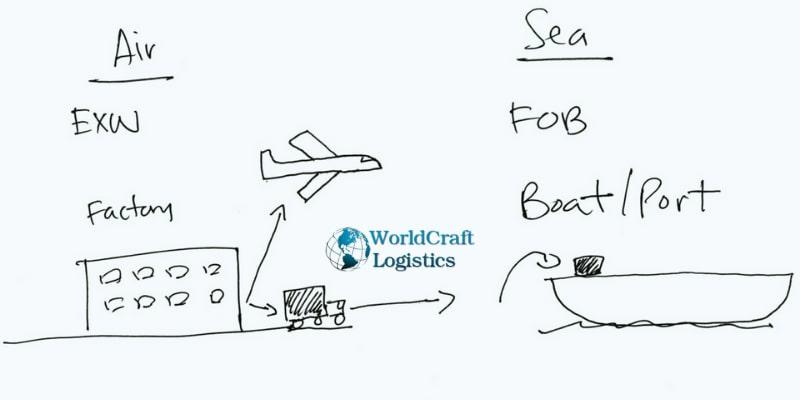
In the realm of shipping, the term 'unit price' denotes the agreed or standardized cost of transporting a commodity based on a specific unit of measurement. For example, it can be the cost to transport coal per ton, oil per barrel, or grain per bushel.
The total landing cost will provide you with a comprehensive overview of all expenses, allowing you to accurately assess which Incoterm would be the better choice for maximizing your revenue. Therefore, take the time to calculate for both FOB and EXW shipments, and once you have the total cost of arrival for both, you will know which option is most advantageous for you. We hope that through this article, Worldcraft Logistics has provided you with sufficient knowledge. Stay with us for more related topics.
SEO
Digital Marketing/SEO Specialist
Simon Mang is an SEO and Digital Marketing expert at Wordcraft Logistics. With many years of experience in the field of digital marketing, he has shaped and built strategies to effectively promote Wordcraft Logistics' online presence. With a deep understanding of the logistics industry, I have shared more than 500 specialized articles on many different topics.
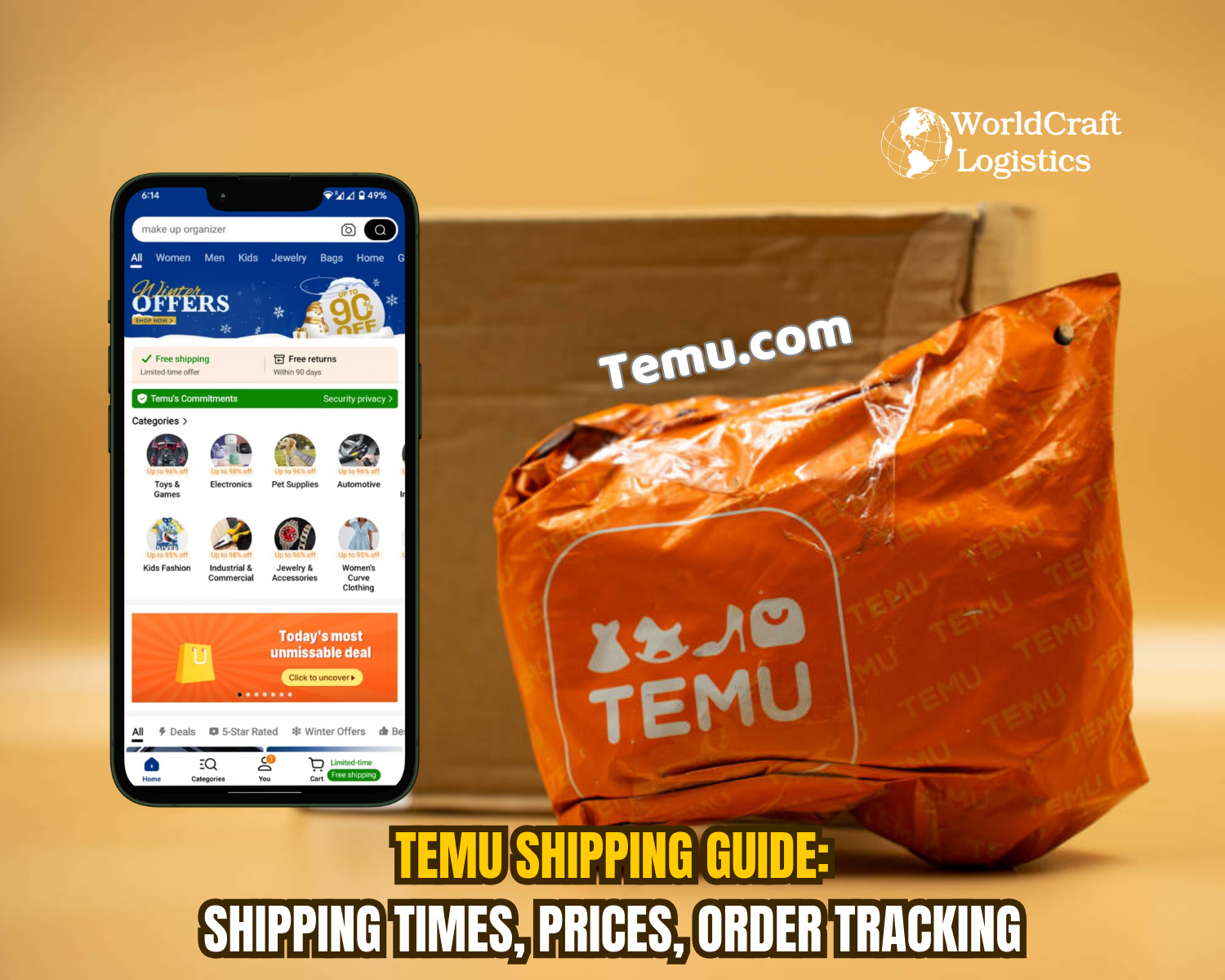
Education
01/05/2025
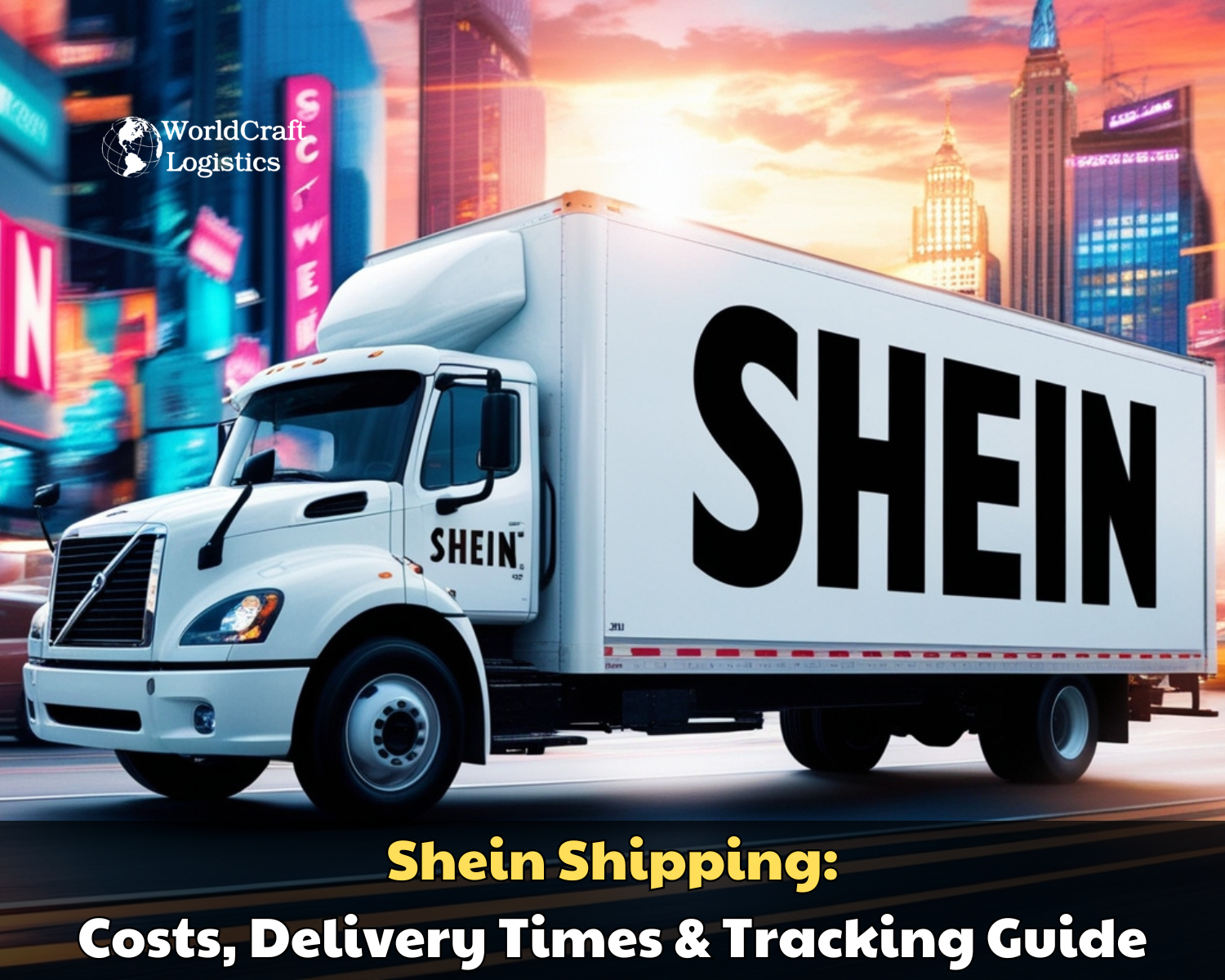
Education
02/18/2025
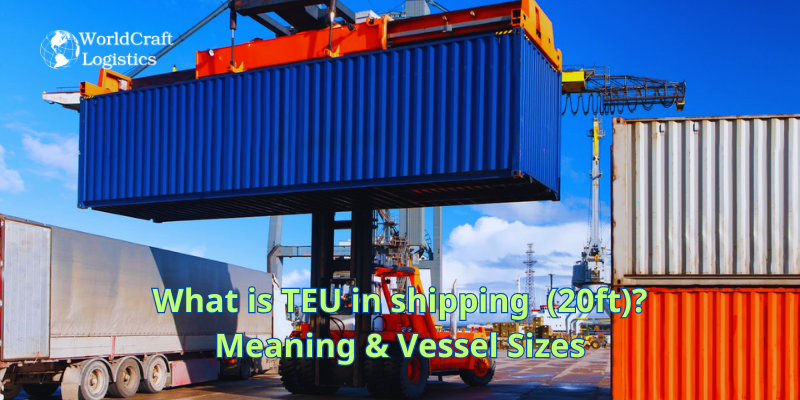
Education
01/01/2024
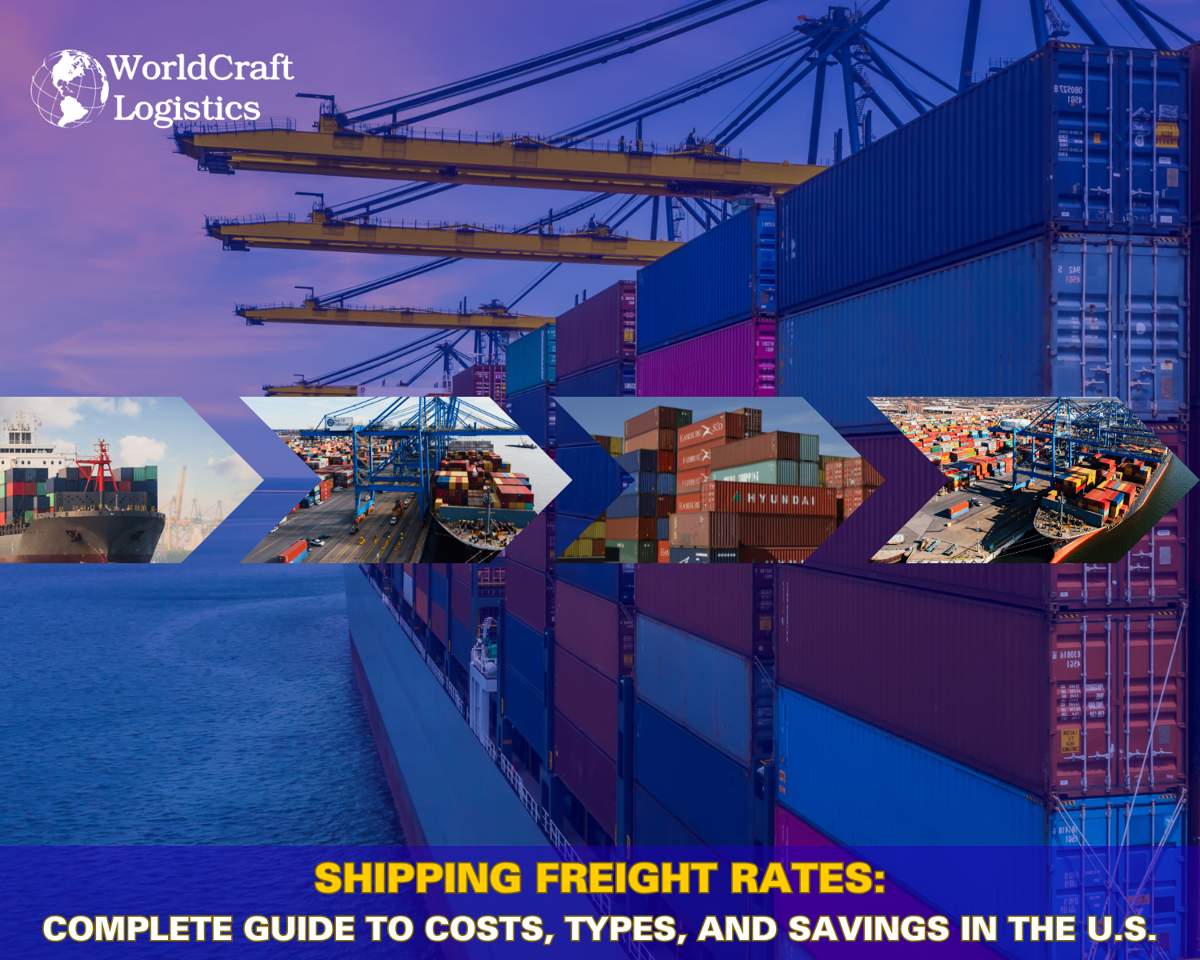
Education
09/09/2025
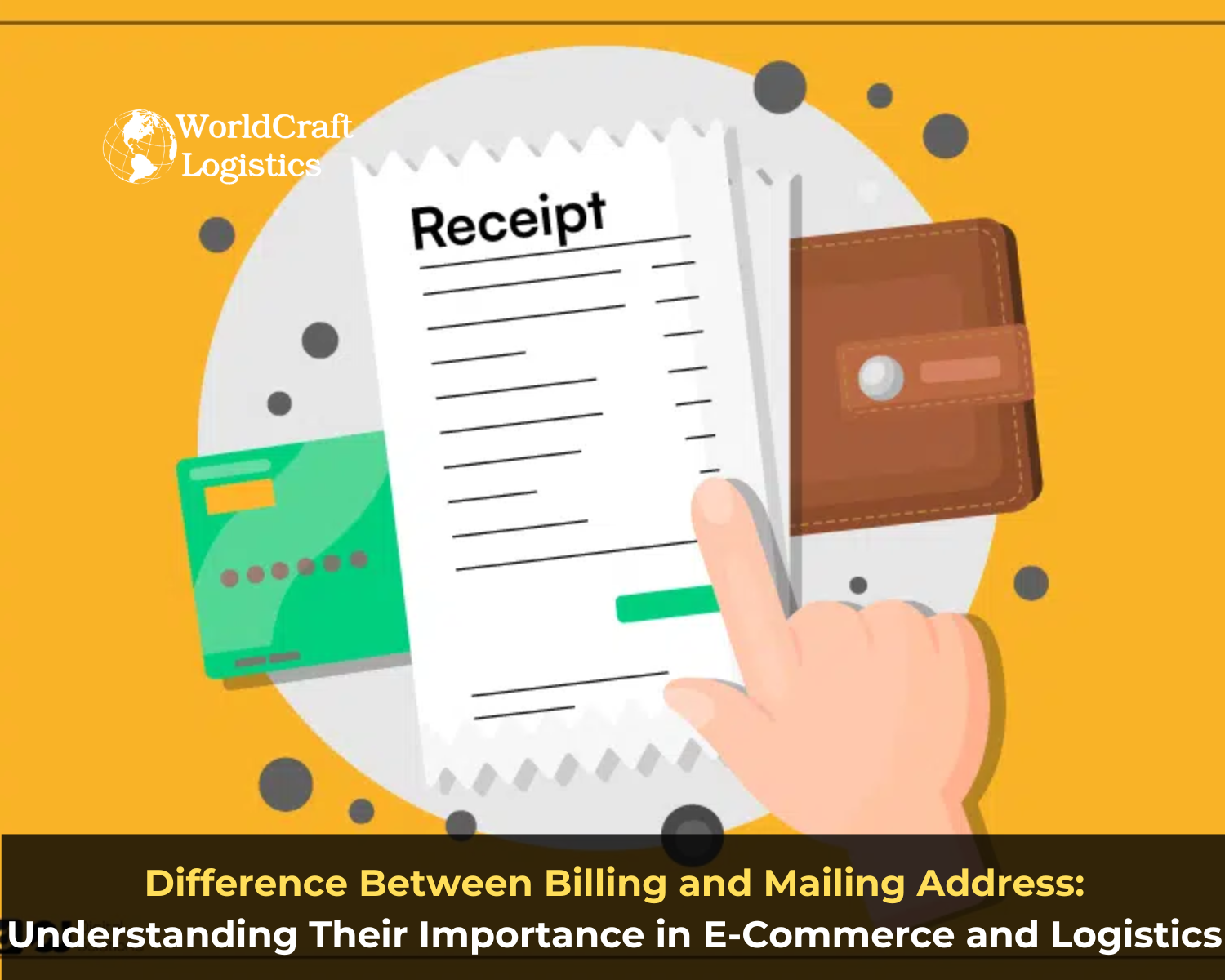
Education
08/28/2024